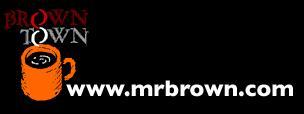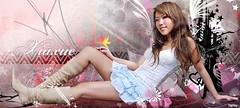Undoubtedly, there is precious little political debate in this country. But there are certain periods during which more discussions are allowed, and they occur in cycles. These cycles can be likened to the four seasons. The only difference is that the cycles stretch over four-to-five year periods between general elections.
Spring – full of promise
This is the year immediately following a general election. All shades of political talk in during this season comes mostly from the PAP. After the defamation suits against opposition candidates have been filed, the PAP leaders will launch into major self-congratulatory rhetoric.
This is the opportune time to announce programs such as Remaking Singapore and Economic Restructing Committees, and garnishing it with promises to "leave no stone unturned" and slaughter "sacred cows". After all, citizens are now weary and even fearful of engaging in any political talk.
It is also the season when the Government becomes boldest. The last elections saw 16 people arrested after an SDA rally. Shortly after, opposition supporter Robert Ho was charged in court for posting "inflammatory" messages on the Internet. This is also the season where upbeat news hog the local media headlines as journalists scramble to talk up the economy and job market in the wake of another PAP landslide victory.
Generally, this is a season of renewing a new rhetoric to position Singapore for more overseas investment. Whether or not the rhetoric translates to any real political openness for Singaporeans is beside the point.
Summer – time to relax
This is holiday time for the PAP government. With 4 to 5 years away from the next general elections, this is the time to encourage Singaporeans to "make adjustments", "make sacrifices", "make contributions" and "speak up" for the "good of the nation”. The Straits Times will pound away on this new "freedom" and launch into a campaign to encourage civil society to be more active. Interviews with opposition and civil society members are given the green light by editors and outspoken youths are also given their say. Political discussions groups, websites on political matters and student conferences are usually formed at this time.
Most Singaporeans not familiar with the political seasonal cycles will think there is a genuine opening-up of political space. Of course, the charade is good for the PAP for it gives this facade of democracy taking place in Singapore when in reality nothing has changed. Anyone who takes the Government at face value and oversteps the OB markers will find themselves quickly put back in line.
In the “summer” of 1986, 22 young professionals responded to this call to contribute to civil society were arrested under the ISA for being "Marxist conspirators” – a charge that till today has remained unproven. Similarly, author Dr Catherine Lim thought in 1994 that the PAP was actually serious about opening up society and publicly criticised PM Goh Chok Tong's governing style. Ouch! The PM publicly humiliated the writer by giving a dressing down, adding that criticisms of the Government must not be by "writers on the fringe." Needless to say, Dr Lim heeded the PM’s warning. Then in 2000, the PAP government launched the Speaker's Corner at Hong Lim Park. Barely six months after its creation, police called up two activists for questioning in connection to an event organized by Think Centre and Open Singapore Centre to commemorate International Human Rights Day on 10 December.
To the casual observer, political summer in Singapore always seems like the beginning of greater relaxation in the sphere of politics. But in the heat, mirages are commonplace.
Autumn – lest you fall
This is the period immediately preceding a general election. All talk of political openness turns yellow and falls off the PAP tree. The darkness gets longer and the chilly winds of new legislation that inhibit civil society and opposition parties begin to blow. In April of 2001, seven months before the GE, Parliament introduced a law to punish foreign broadcasters from interfering in domestic politics. Three months later in July, the Singapore Broadcasting Authority put pressure on internet political forum Sintercom to register as a political website. Sintercom folded shortly thereafter. In August, Parliament passed a new bill to restrict political campaigning on the internet and the barring of opinion polls during a general election. In his National Day message, Mr Goh Chok Tong coldly warned that the Think Centre was “openly critical of the Government…the Government cannot ignore this."
The true face of authoritarian PAP surfaces in this season. Suddenly, opposition members and civil activists find their feet getting cold. The Bertha Hensons and Chua Lee Hoongs who were speaking up for political openness before now begin to march to the tempo of winter.
Winter – cold, short and ugly
This season is the shortest of all – it lasts for only nine days. Avenues for political discourse, especially that for civil society, are clamped down. In the 2001 elections, the Think Centre were not allowed to run any election reports on their websites. The Workers’ Party were also told to take down a public donations advertisement on their website. There was even a law to regulate political content in SMS messages! Meanwhile the propaganda from the PAP is cranked up by several decibels. Anything and everything is done to ensure that the PAP not only wins the elections but that it iron-grip on the house is remains. Every GE also throws up a lightning rod for the PAP and the media to flex their muscles. In 1988, it was Francis Seow; 1991, Mohd Jufrie; 1997,
Tang Liang Hong and J.B.
Jeyaretnam; 2001, Chee Soon Juan.
This is also open season on democracy. All semblance of democratic principles goes out the window - voters who favour opposition are threatened with HDB upgrading, enticed by shares, and the attorney-general says that it is alright for the PAP leaders to be inside polling stations (where they are clearly not authorized to do so). And, of course, media’s partisanship and bias is demonstrated in full glory.
Conclusion
Singaporeans must realise that all the talk of political openness in Singapore is really much ado about nothing. In fact, they are injurious to efforts pushing for democracy because they create a false impression that we are becoming an open society when the opposite is true. The sooner we realize this the sooner we can embark on genuine democratic reform.
















